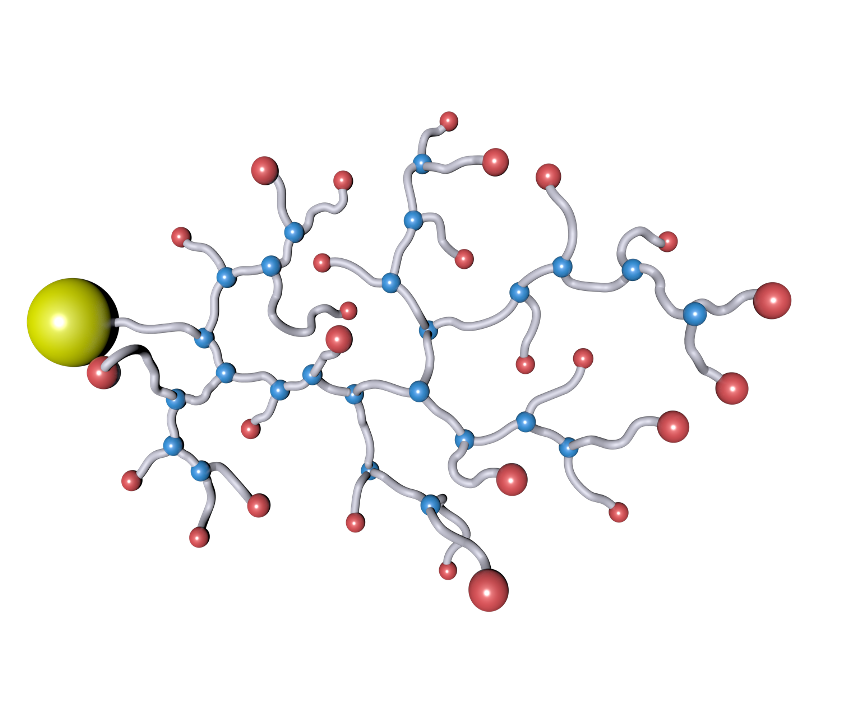Polymers in Construction: Stronger, Lighter, and More Durable
Polymers in Construction: Stronger, Lighter, and More Durable
Blog Article
Exploring the Varied Applications and Advantages of Polymers in Different Industries
Polymers, with their varied variety of buildings and functionalities, have come to be important in different sectors, each gaining distinct benefits from their application. From enhancing safety and security and performance in the automobile sector to changing clinical tools in the medical care industry, polymers play an essential role.
Automotive Market Applications
Polymers play a critical role in improving the performance and sturdiness of different components within the auto sector. One noticeable usage of polymers in the auto industry is in the production of light-weight components.

Medical Care Industry Advantages
In numerous healthcare applications, the benefits of utilizing polymers are commonly recognized for their diverse variety of useful properties. Polymers play a crucial duty in the healthcare market due to their versatility, biocompatibility, and cost-effectiveness. Among the key advantages of polymers in health care is their capacity to be tailored to particular needs, such as adaptability, toughness, and biodegradability, making them optimal for a vast array of medical applications.
Polymer-based materials are thoroughly used in medical gadgets, such as catheters, implants, prosthetics, and medicine distribution systems, due to their biocompatibility and capability to mimic natural tissues. These materials can decrease the danger of allergies or denials, improving person safety and security and end results. Furthermore, polymers are lightweight, making them suitable for wearable clinical gadgets and guaranteeing client comfort.
Furthermore, polymers allow the development of cutting-edge treatment approaches, such as hydrogels for cells engineering and nanocomposites for targeted medicine distribution. Their simplicity of processing and sanitation makes them important for keeping high standards of health in healthcare settings. On the whole, the diverse benefits of polymers add considerably to improvements in medical innovation and person care.
Environmental Advantages of Polymers

Additionally, polymers can add to power savings due to their lightweight nature. In sectors such as transportation, lightweight polymer materials can help in reducing gas consumption and greenhouse gas emissions. Furthermore, polymers can allow the advancement of energy-efficient items such as go to website insulation materials that enhance power conservation in buildings.
In addition, polymers play a vital duty in decreasing water pollution. As an example, making use of polymer-based filtering systems can efficiently eliminate contaminants and contaminants from wastewater, protecting water resources and communities. On the whole, the environmental benefits of polymers look at more info make them valuable assets in promoting sustainability and environment-friendly methods across numerous sectors.
Polymers in Electronics and Technology
Considering the raising demand for innovative and lasting services in modern sectors, the combination of sophisticated polymer technologies in the world of electronics and technology has become a crucial approach for driving performance and efficiency. Polymers have actually transformed the electronic devices industry by enabling the production of lighter, much more versatile, and resilient digital tools. From smartphones to medical tools, polymers play a critical role in improving item design and performance.
One substantial advantage of polymers in electronics is their insulating residential or commercial properties, which help protect delicate digital elements from environmental factors and electrical interference. Furthermore, polymers are necessary in the advancement of versatile displays, wearable technology, and published electronics, supplying countless opportunities for producing smart and interconnected gadgets.
Additionally, using polymers in electronic packaging has resulted in improvements in miniaturization and thermal administration, enhancing the general efficiency and integrity of electronic systems. As modern technology continues to develop, the flexibility and versatility of polymers will undoubtedly drive further development in the electronic devices industry, forming the future of technology.
Role of Polymers in Building And Construction and Facilities
The assimilation of advanced polymer products in construction and framework projects has transformed the method structures are developed and integrated in contemporary times. Polymers provide many advantages in the building market because of their convenience, resilience, and cost-effectiveness. One essential function of polymers in building is their use in finishes and sealers, giving protection versus ecological elements such as moisture, UV radiation, and rust. Furthermore, polymers are used in the manufacturing of light-weight and high-strength composite products, enhancing the architectural honesty of buildings while reducing total weight.
In addition, polymers play a vital role in lasting building techniques by allowing the development of energy-efficient frameworks. Insulating products made from polymers help manage indoor temperature levels, decreasing the need for home heating and cooling systems and eventually decreasing power intake. In addition, making use of polymer-based composites in infrastructure jobs such as bridges and roads improves their long life and minimizes upkeep expenses. Generally, important source the consolidation of polymers in building and facilities showcases their significant effect on contemporary engineering methods.
Conclusion
In verdict, polymers play an important duty in different industries such as automotive, medical care, ecological, electronics, and construction. Their versatile residential or commercial properties make them important in developing innovative solutions and products. From improving fuel efficiency in automobiles to boosting clinical tools, polymers offer numerous advantages. Furthermore, their influence on lowering waste and promoting sustainability highlights their value in modern-day applications. The extensive use polymers demonstrates their substantial payment to advancing modern technology and boosting high quality of life.
Report this page